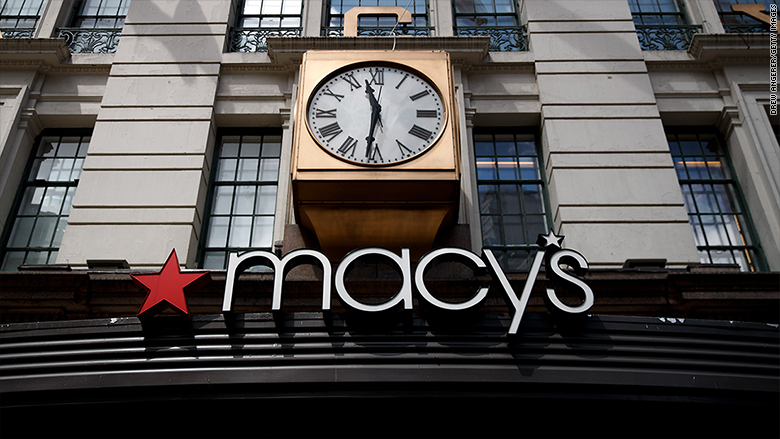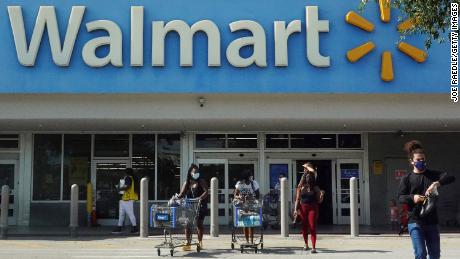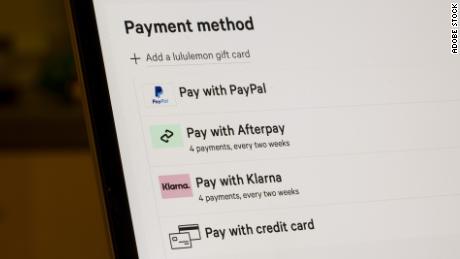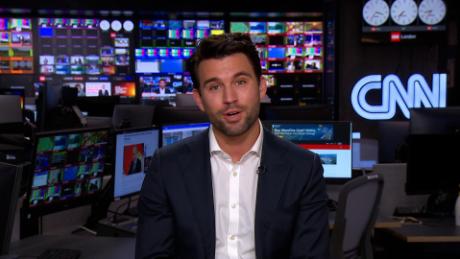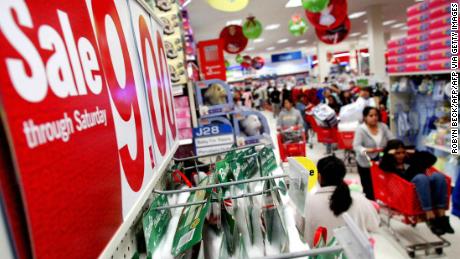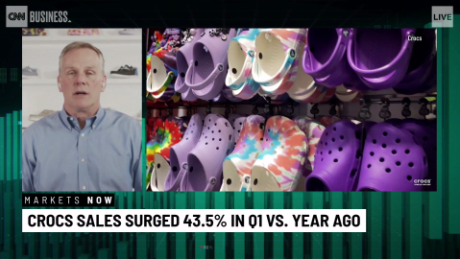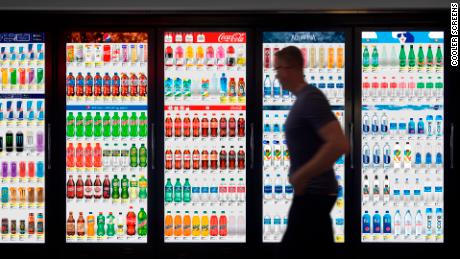New York (CNN Business)American stores had a great holiday. So why are their stocks getting killed?
Macy's (M) stock plunged close to 18%, its worst day in history, after the company reported sluggish sales for November and December and trimmed its guidance.
The company has been shrinking its store sizes, adding more discount Backstage locations, and rolling out buy online, pickup in store capabilities. But those investments fell short as more shoppers gravitated to discount chains like TJX (TJX) and Amazon (AMZN). Amazon's holiday sales grew 17% this year, according to Rakuten Intelligence.
"The holiday season began strong -- particularly during Black Friday and the following Cyber Week, but weakened in the mid-December period and did not return to expected patterns until the week of Christmas," said Macy's CEO Jeff Gennette. Macy's reported weakness in areas like women's sportswear and jewelry.
Despite early signs of retail's best holiday in six years, investors were disappointed by a flurry of other sales results on Thursday.
Retailers make an outsized chunk of their sales during the holidays and the season brings heightened expectations. Pressure is even higher than usual this year because unemployment is low, wages are rising, and gas prices are cheap.
Kohl's (KSS), which had a strong 2018 under new CEO Michelle Gass and launched partnerships with Amazon and Aldi, reported a 1.2% increase in holiday sales compared to last year. Kohl's has benefited from its off-mall footprint and expansion into athletic brands like Under Armour and Nike.
CEO Gass said she was "delighted" with the holiday season, but Wall Street was not. Kohl's lost close to 5%.
Macy's and Kohl's weakness dragged department store peer Nordstrom (JWN) down 4% and JCPenney (JCP) close to 5%. JCPenney said on Tuesday that its holiday sales decreased 3.5% from last year and it would close stores this year. New CEO Jill Soltau faces the difficult task of reviving the struggling chain, which fell below $1 a share briefly last month.
Big box retailers
Target's holiday sales increased 5.7% from last year, putting the company on track for its best year since 2005.
Target's sales were driven by growth in toys, baby, and seasonal gifts, it said. Target's strategy to buy up toys in Toys "R" Us' absence paid off. It also got a lift from its investments in buy-online, pickup in store. Holiday pickups grew 60% from last year and made up a quarter of Target's digital sales during the period.
"This performance demonstrates the benefit of placing our stores at the center of every way we serve our guests, including both in-store shopping and digital fulfillment," CEO Brian Cornell said.
But Target (TGT) dropped close to 3% on Thursday. Investors were discouraged that Target did not raise its guidance and worried about its profit margins. Target dropped its minimum order requirement for the first time during the holidays, which could weigh on profitability.
Big box rival Costco (COST) ticked up slightly, despite a 7.1% increase in US sales during December. Costco and Target are able to use their vast size and buying power to keep prices down on a broad variety of merchandise. Wall Street analysts believe they are in a stronger position to compete against Amazon and the rapid growth of dollar stores.
Macy's, Kohl's, and Victoria's Secret parent L Brands (LB) were the three worst performers on the S&P 500 Thursday.
Although it turned to heavy promotions, Victoria's Secret sales fell 6% in December. Victoria's Secret is heavily exposed to malls and has been undercut by brands like Aeire and ThirdLove projecting more natural-looking advertising.
Barnes & Noble (BKS) posted a surprise 4% increase in sales compared to last year, but said profit would fall by as much as 10% from higher promotions and advertising costs. That sent shares tanking more than 15%.
Difficult year ahead
Some winners emerged from the wreckage Thursday. Dollar and value stores like Dollar General (DG), Five Below (FIVE), and Ollie's Bargain Outlet (OLLI) gained. Investors believe these chains are poised to continue taking market share as retail consolidates and consumers search for value.
The holidays played out against the backdrop of once-dominant retailer Sears' bankruptcy and its potential liquidation, as well as fears about higher tariffs on imported goods from China and an economic slowdown in that country. Although some chains have proved their ability to make the transition to online shopping, fulfilling online orders is costly. Wall Street is wary of challenges ahead for stores as they continue to battle Amazon and face tougher economic conditions this year.
Apple's warning about a sales shortfall in China last week rattled retail stocks. Apple (AAPL) is a top supplier to Best Buy (BBY), while brands like Nike (NKE) and Lululemon (LULU) depend on the market for growth.
Other factors could carry risks this year too. Retailers have raised wages for their workers and transportation costs are up sharply.
"2019 will likely be a more difficult year for retail stocks," RBC Capital Markets analyst Scot Ciccarelli said in a research note.
